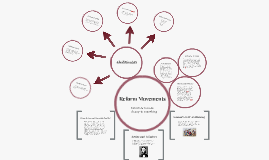arrows
Transcript: Frederick Douglass Sojourner Truth This was a time when religious feelings/beliefs was brought up again. This increased religious confidence and more individuals started attending churches and missionary societies. Harriet Tubman Angelina and Sarah Grimke Prison Reform and Care of the Disabled Daughters of a slave owner who gave lectures of how slavery was evil, in the North. A vocal abolitionist and publisher of the newspaper "The Liberator". The American Anti-Slavery Society in 1833. Second Great Awakening Temperance Movement Reform Movements He was a slave that escaped, leader in the abolitionist movement and gave lectures that were against slavery. Also, he created his own newspaper, "North Star" in 1847. A former slave that spoke out against the evils of slavery because she was inspired by the acts of Frederick Douglass. During this time, women did not have many right such as: voting, their wages belonged to their husband, property belonged to their husbands, and no law stated was against husbands abusing their wives. This angered Lucretia Mott and Elizabeth Cady Stanton (daughters of a judge). So, they hosted a national women's rights convention. The organizers of the convention wanted the Declaration of Sediments on the Declaration of Independence. Another convention in 1848 (Seneca Falls Convention) demanded equality for women. Many abolitionists/activists attended this event like Douglass, the Grimke sisters, and Susan B. Anthony. William Lloyd Garrison Many children at this time could not afford to attend school. Horace Mann wanted to change this condition, so he spoke about how public education was important and how it could improve the society. This lead to people agreeing to build better schools and increasing teacher's salaries. However, African Americans were not allowed to attend school and few girls could only attend. Artists and Thinkers Reform is to make change in something Dorothea Dix was a Boston schoolteacher who agreed to teach at a jail on Sundays. When she visited the prisons, the treatment of the prisoners surprised her. The children and adults did not have enough food, cells were crowded, and the mentally ill were being abused. Due to these unfortunate conditions, Dix wrote a report to the state legislature which prompt them to create a hospital for the mentally ill. In addition, Dix outlawed cruel punishments, stop debtor's prisons, and made a special justice system for children. Civil Disobedience is a peaceful protest, usually individuals refuse to obey laws or refuse to pay taxes. Henry David Thoreau supported people who refused to obey the laws they considered unfair. Abolitionists Women's Rights Movement An abolitionist who helped slaves secretly run away on the Underground Railroad. Men, women, and children were very exposed to alcohol. So, around the 1820s, the public campaign against alcohol, the temperance movement, was initiated. However, this movement was being repealed and not focused on. This conflict was beginning to come back in the 1900s though. The temperance movement, during the 1900s, was lead by Carrie Nation. Later on, alcohol was banned in the 18th amendment in 1919. Public Education

















